The musical compositions of Richard Burdick
Follow on Twitter
Opus 59
King of Birds
for narrator, flute, violin and harpsichord
Spring 1996
Contact us for a free study score
Original quartet version is available from IMSLP for free
This was written for Trinity Chamber Concerts children's concerts.
Premiered May 1996 in Davis, California
This exists in two forms:
1) the original
for narrator, flute, violin and harpsichord
or
2) for narrator, flute, violin and pizzicato string orchestra
The original quartet version is available from IMSLP for free, I just ask that all performances be reported to ASCAP
Contact us for more information.

How the leader of the Birds was chosen
for narrator, flute, violin and harpsichord
by
Richard Burdick, opus 59
Long ago, when the Mayans were living in the Mountains of what is now Peru on the West coast of South America, things were different. Flowers, Birds, trees and animals wore other colors and shapes than those we see today. Halach-Uinic (ha lak u nic) the great spirit guarded all Mayaland and his word was law.
One day Halach-Uinic grew tired of the constant chatter and fighting among the birds. Therefore Halach decided to appoint a bird leader so that the birds could make peace and be quite in Halach’s world. Calling for Xtun-tun-kinil (sh tun tun ke nel) the roadrunner chief of the messengers Halach sent word to all the birds to meet the next day in the center of the forest. There they would elect a leader; a strong ruler who would keep things quite for the great spirit.
As each bird learned of the election they all began to boast of their best qualities. Col-pol-che (kol pol che) the cardinal sang “Look at me! No one else is bright red and as beautiful as I. All the birds admire me. I should be queen" And she strutted before her audience fluttering her wings and raising her crest .
X-col-col-chek (she col col chek) the mockingbird trilled “I’m the only bird with such a lovely voice Listen.” Her concert caused much awe among the birds but the great sprit grumbled about the noise. The wild turkey, Cutz, strode into the middle of the circle and gobbled “There’s no doubt I should be your ruler. Am I not the strongest Bird? With my size and strength, I can stop any fight and defend any bird in trouble. You need a powerful king and I’m the one!”
Kukul (koo kul) the quetzel bird remained quiet. He listened patiently to each bird tell why each should be leader but he didn’t dare compete. Kukul was very ambitious and Proud. He had fine manners and a graceful body but his feathers were shabby and rather dull, and he thought his clothing would keep him from being the leader. Suddenly he had an idea! Kukul flew over to his friend Xtun-tun--kinil the Roadrunner and said “I would like to make you an offer. Your feathers are as handsome as any bird’s here, but you are too busy with your work as a messenger to become the leader. Would you loan me your plumage for the contest. When I’m elected I'll share the wealth and honors with you.”
Xtun was silent as he thought of the glory he would have if he were the closest friend of the ruler of the birds. It was a tempting offer but he did not care to part with his beautiful plumage. Kukul kept chattering and assuring Xtun-tun of his honesty and his good intentions. He described scenes of the Richardes to come. At last the roadrunner was convinced, and he removed his feathers one by one and lent them to the clever quetzal who fixed them on his body as if they were his own.
Continued on the inside of the back cover.
Within minutes the quetzal was dressed in the most splendid costume. Kukul’s tail hung in a sweeping curve of jade green plumes. His body shimmered with soft blues and greens like the Mayan sky and jungle. His breast blazed with the red of a tropical sunset. Swinging his lovely long tail in an arc, the bold bird promenaded into the clearing where all the birds of Mayaland were assembled. His entrance caused a hush, and then cries of Bravo,' "Hurrah, 'Oh," and “ah” filled the forest Some birds twitched their tails in envy others squawked in surprise. There was not one who did not feel some jealousy at the sight of this beautiful new bird. Of course they did not recognize kukul.
Halach-Uinic was pleased since he knew of kukul’s deception and thought “he is a ruler whom I can control" The Great Spirit called the crowd to order and declared, “I name the quetzal to be leader of the birds.”
A loud flapping of wings followed this announcement as each bird fluttered over to Kukul to offer congratulations. Then a big party was given in kukul's honor, and after this all the birds flew home and left him to begin his new duties as leader. Kukul found himself so busy that he had no time to return the borrowed plumes. In fact he was afraid to take them off and soon forgot his promise to the roadrunner. For a while Kukul kept the birds from fighting and the forest was quite for the Great spirit but . . .
One day a group of the birds was meeting in a Chacah, or Gumbo limbo, tree. One of the noticed that Xtun-tun-kinil had not appeared. No one had seen him since the election. They began to suspect that Kukul had played some kind of trick and they immediately organized a search for the roadrunner.
At last deep in the jungle behind a Zipche, or coffee bush, they found the X-tun-tun-kinil naked and trembling with cold, half dead, and he kept crying, “Puhey? Puhey? Which sounds like “where is he? Where is he? in the Mayan language. Quickly, the birds gave him some balche, the sacred honey drink of the Mayas, to help him recover. As soon as he was able, Xtun-tunn told them about the cruel trick played on him by the quetzel bird.
The birds felt sorry for the roadrunner. They went to kukul and told him that he should give back Xtun-tun’s feathers and resign. The Great Spirit didn’t want kukul out of office, he wanted kukul’s clothing kept secret. It would be impossible for the leader to give his feathers back. Each bird then gave a few plumes to cover the poor roadrunner. That is why today roadrunner's plumage has so many colors and odd patterns. After the roadrunner was healthy he resumed as a messenger and began to spread the word that kukul the ruler was really the Quetzel bird who had deceived all the birds. So the birds started singing and chattering all the time in protest of "Kukul the King." To this day the birds sing and chatter to displease the great spirit, mocking the “King.”
© 2009 Richard Burdick
Contact us for more information.
CONCERT REVIEW
Davis Enterprise, Monday, May20, 1996
Concert intended for kids brings surprises
Original composition
brings birds’ songs
alive in Peruvian folktale
By MARILYN MANTAY
Enterprise music critic
Creating musical surprises on a rainy afternoon, the Trinity Chamber Concerts performed at the Unitarian Church on Wednesday a program of trios and quartets planned to beguile and enchant children. (This was the last in a short series of concerts supported partially by a grant from the Davis Arts Commission.) The contemporary compositions, particularly, were organized in a manner that was musical and attractive, but easy to follow.
The children, even though invitations were hand-carried to schools and to music teachers, stayed away. There is no doubt that Richard Burdick, composer and French horn player who organized the series, was disappointed, but the other concerts were better attended, and his audience - of adults was enthusiastic.
The opening Concerto in D by Georg Philipp Telemann showed at once that the combination of instruments was in excellent accord.
Flutist Elizabeth Coronata and violinist Robert Bloch supplied rich, mellow tone and expressive line; hornist Burdick’s style was lilting and lively. Jeanette Leifson — her harpsichord was a small, portable instrument she called a spinet — played an elegant continuo. Particularly strong was the last movement Allegro in which the violin, which had been reticent, became an equal partner with the flute.
MUSIC REVIEW TRINITY CHAMBER CONCERTS
Burdick’s own charming compositions comprised the rest of the concert. Most ambitious was “The King of the Birds” for narrator, flute, violin and harpsichord.
Burdick retold a Peruvian folktale and gave each actor — each bird — a distinct song.
To the ear, these songs evoked the bird and the action described without being trite. The cardinal preened, the meadowlark trilled, and the great spirit grumbled — the flute grumbled! — at all the noise. The beginning suggested a bright and exotic natural world, and the end a conclave of endlessly chattering birds.
Burdick was conductor and narrator — his original narrator had to work on Wednesday afternoon -- and was a better conductor.
More interesting among Burdick’s pieces was the short “Gamut & Hay,” an exploration of the tonalities of 11th century hexachords. The music began with a rapid and repetitive harpsichord; seeming atonality and short phrases announced the work as contemporary. As the intruments combined in different ways, the variations in texture were fascinating.
In “Flowing Lines of Silence” you could hear the overlapping of instruments on entries, the overlap increasing each time until the original returned. A child — that absent child — would have enjoyed the construction and perhaps noted how mathematical it was.
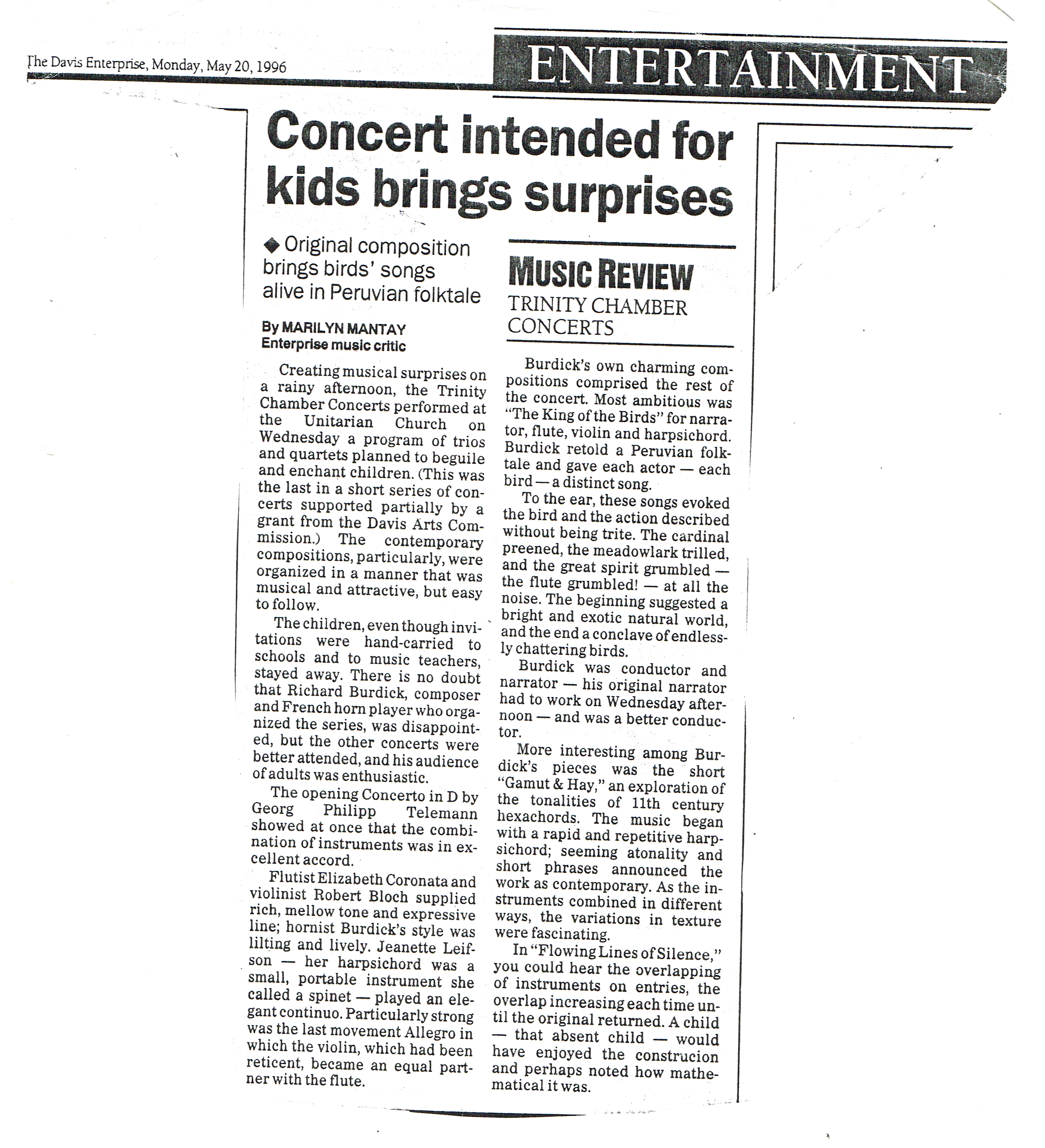
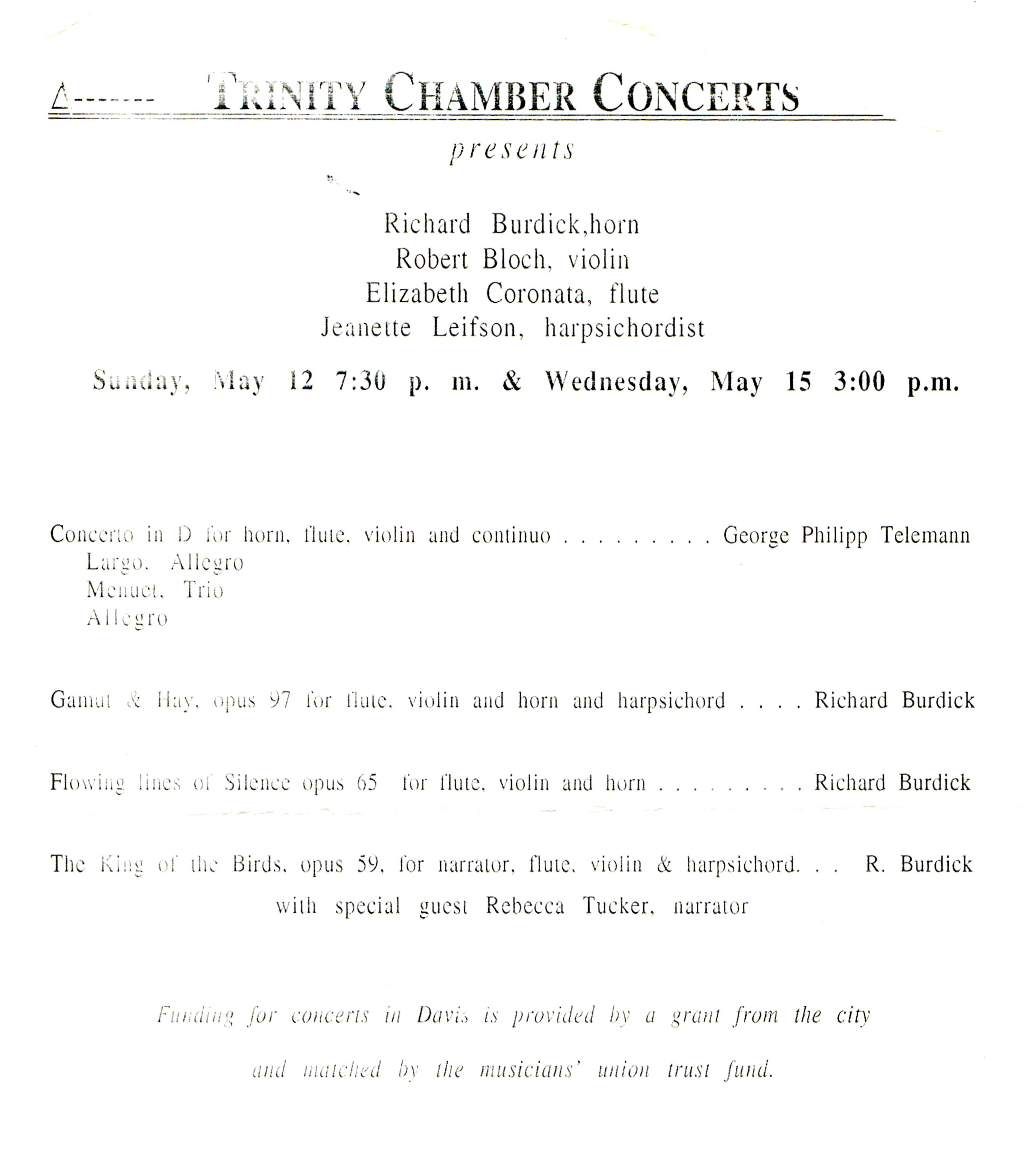
Search I Ching Music:
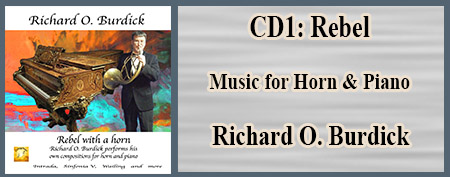 CD2
CD2 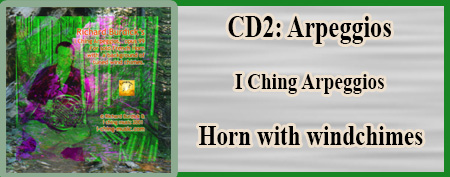 CD5
CD5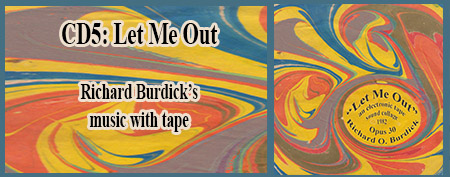 CD6
CD6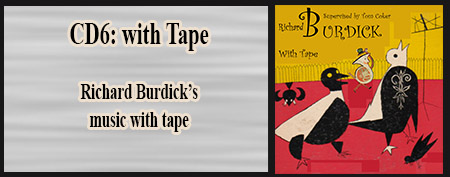 CD7
CD7 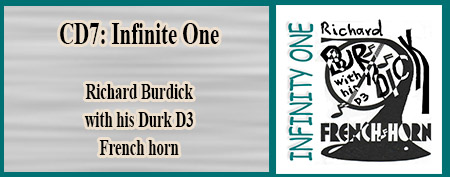 CD8
CD8 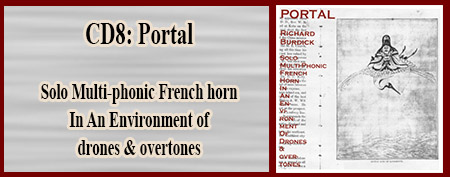 CD9
CD9 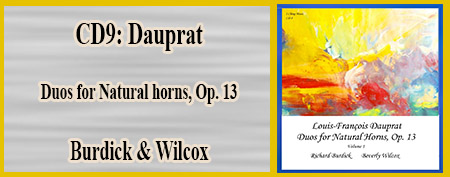 CD12
CD12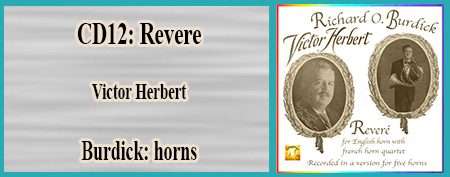 CD14
CD14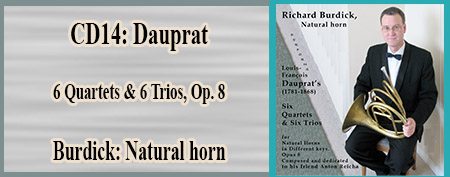 CD15
CD15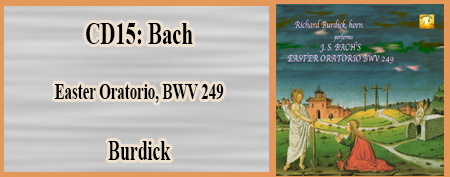 CD16
CD16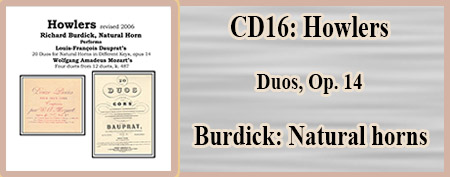 CD17
CD17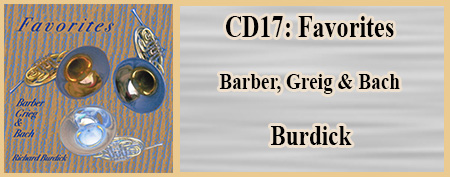 CD17a
CD17a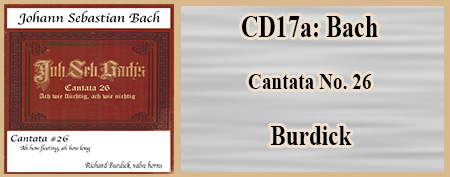 CD18
CD18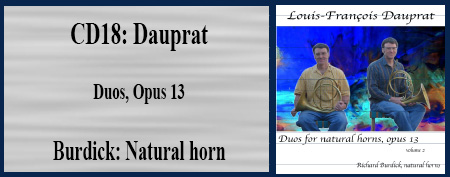 CD19
CD19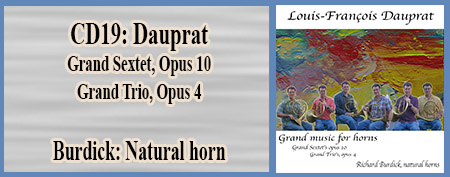
CD19a
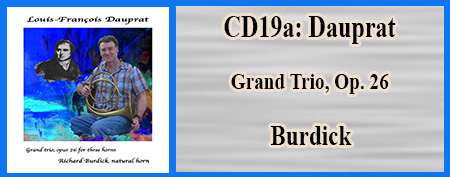 CD20
CD20 CD21
CD21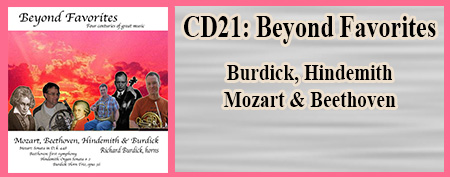 CD22
CD22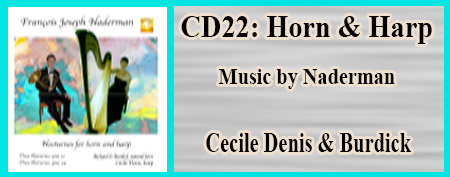 CD23
CD23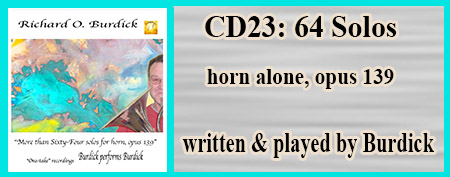 CCD24
CCD24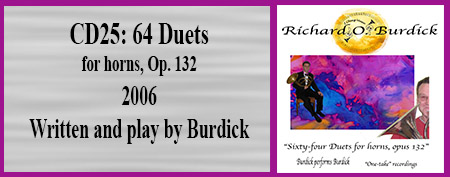 CD25
CD25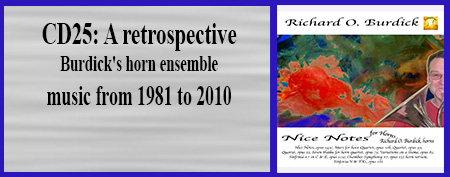 CD25a
CD25a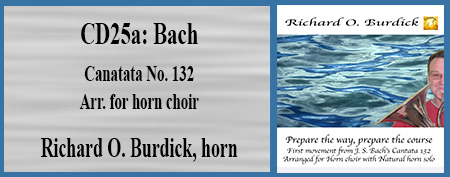 CD26
CD26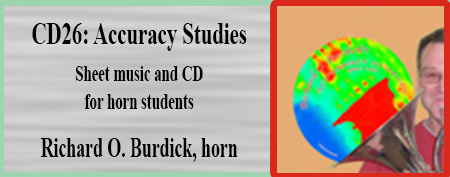 D27
D27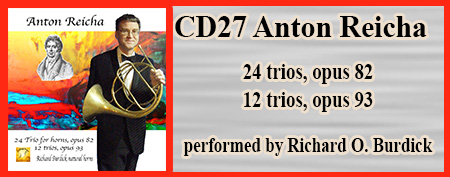 CD28
CD28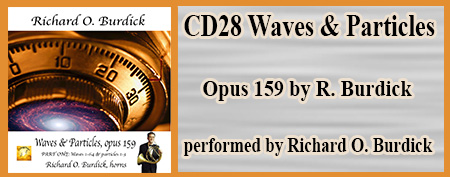 CD29
CD29 CD30
CD30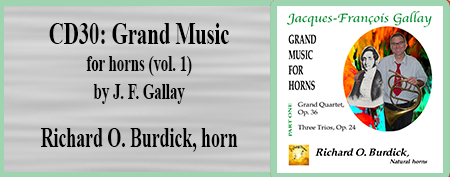 CD31
CD31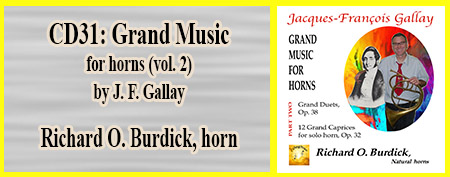 CD32
CD32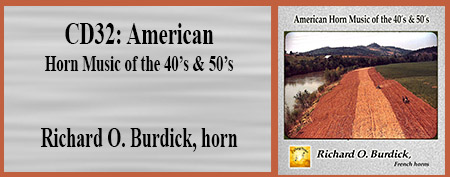 CD33
CD33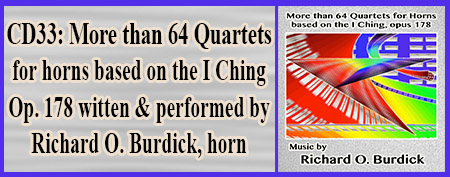 CD34
CD34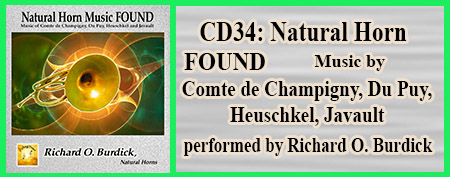 CD35
CD35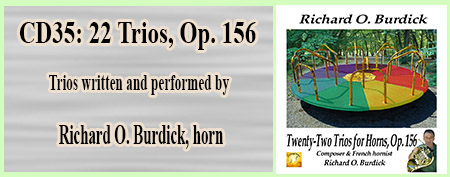 CD36
CD36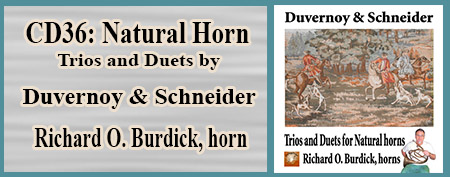 CD37
CD37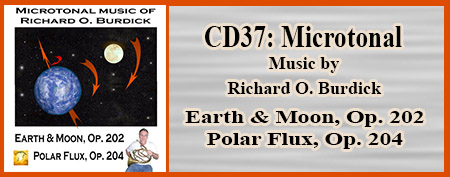 CD38
CD38 CD39
CD39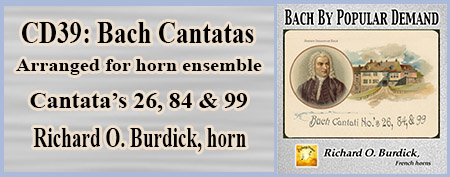 CD40
CD40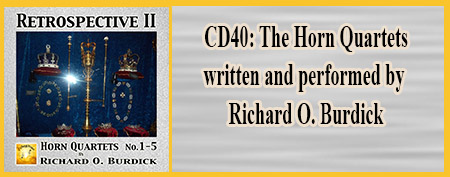 CD41
CD41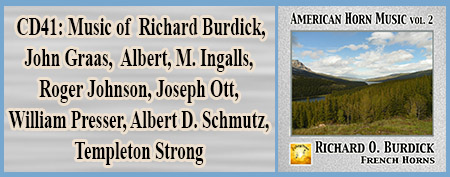 CD42
CD42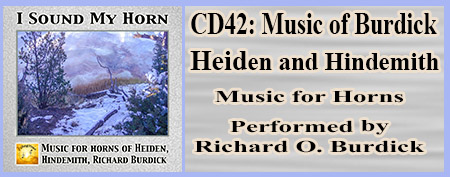 CD43
CD43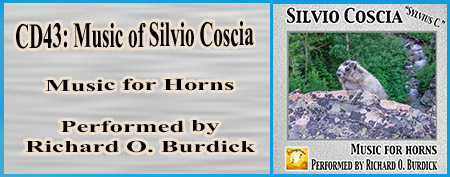 CD44
CD44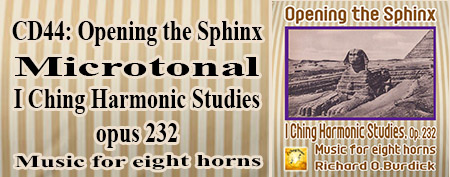 CD45
CD45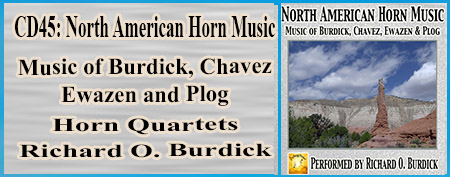 CD46
CD46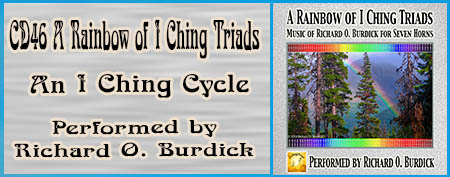 CD47
CD47

